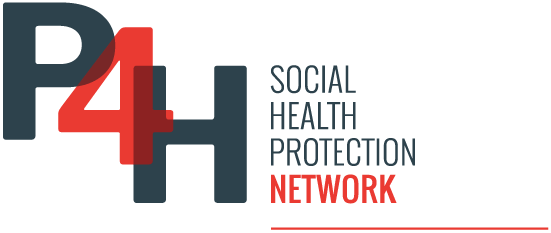The number of documents available on the P4H Network’s digital platform reflects the network’s scope of work. The majority of documents are primary source materials created by country nationals or resources produced by organizations working in social health protection (SHP) and/or health financing (HF).
Proposed redesign and restructuring of the national health insurance scheme
The report reviews Ghana's National Health Insurance Scheme (NHIS), established by Acts 650 (2003) and 852 (2012), highlighting its success in providing affordable healthcare to millions while identifying key challenges threatening its sustainability. Despite...
Angola’s Health and Nutrition sectors : Review 2023
In 2022, the health budget represented 4.8% of the OGE and 1.6% of the Gross Domestic Product, amounting to a total of Kz 905.5 billion (US$ 2.6 billion) or Kz 27.3 thousand per capita (US$ 54 per capita). The budget is heavily centralized in the Central Government,...
National Health Development Plan 2012-2025 (PNDS) Volume 3
“The PNDS creates opportunities to strengthen the National Health System, so that it can respond more and more efficiently and effectively to our populations' needs, with a common purpose and vision more efficiently and effectively to the needs of our populations,...
The National Health Development Plan 2012-2025 (PNDS) Volume 2
The PNDS will be translated into Annual Action Plans at all levels of the system. Their monitoring and evaluation will be based on a baseline of impact, coverage and outcome indicators to coverage and results to assess the goals and objectives set out in its...
The National Health Development Plan 2012-2025 (PNDS) Volume 1
The National Health Development Plan 2012-2025 (PNDS), drawn up by a Multisectoral Commission, created by Presidential initiative, through Presidential Order No. 84/11 of 27 October, is a strategic-operational instrument aimed at materialising the guidelines set out...
Persistency of catastrophic out-of-pocket health expenditures in Malawi, Tanzania and Uganda
The study titled "Persistency of Catastrophic Out-of-Pocket Health Expenditures: Measurement with Evidence from Three African Countries - Malawi, Tanzania, and Uganda" investigates the ongoing financial burden of out-of-pocket health expenses in Sub-Saharan Africa....
Germany: Hospital Care Improvement Act
The federal government is undertaking a significant hospital reform to address the threat of clinic insolvencies, inadequate treatment, and increased travel distances for patients if current inpatient care structures remain unchanged. The reform aims to ensure...
Law of the Kyrgyz Republic On health insurance of citizens in the Kyrgyz Republic from October 18, 1999 No. 112
Law of the Kyrgyz Republic "On health insurance of citizens in the Kyrgyz Republic" was originally adopted (signed) on October 18, 1999 under No. 112. It was approved by the Jogorku Kenesh (Parliament) of the Kyrgyz Republic and signed by the President of the Kyrgyz...
Does health aid matter to financial risk protection? A regression analysis across 159 household surveys, 2000–2016
The document titled "Does health aid matter to financial risk protection? A regression analysis across 159 household surveys, 2000–2016" delves into the unexplored relationship between health aid and financial risk protection (FRP). Despite the growing emphasis on...
Strategy for implementing Targeted Free Distribution in CAR
The aim of this strategy is to reduce maternal and infant mortality, which is predominant in 07 districts not covered by technical and financial partners, and to guarantee equity in the provision of healthcare to all the people of the Central African Republic. The...
Decree instituting free health care in CAR
On February 15, 2019, the Central African Republic adopted decree N°19-037 on targeted free healthcare in health facilities.Art.1 : Targeted free care is instituted in all public and contracted health facilities in the Central African Republic.Art. 2 : Implementation...
‘We thought supporting was strengthening’: re-examining the role of external assistance for health systems strengthening in Zimbabwe post-COVID-19
In their study titled "‘We thought supporting was strengthening’: re-examining the role of external assistance for health systems strengthening in Zimbabwe post-COVID-19," Alison T. Mhazo and Charles C. Maponga delve into the impact of external assistance on...
Strengthening climate-resilient health systems: opportunities and challenges – policy brief
The policy brief titled "Strengthening Climate-Resilient Health Systems: Opportunities and Challenges," published by ReBUILD for Resilience in 2024, addresses the growing threats climate change poses to global health systems. Highlighting the impacts of...
Health-led growth hypothesis and health financing systems
This study investigates the Health-Led Growth Hypothesis (HLGH) within OECD countries, examining how health expenditures influence economic growth and the role of different health financing systems in this relationship. It offers valuable insights for policymakers on...
Denmark: Health system summary 2024
Denmark’s national health system provides universal, largely free care to its 5.9 million residents through a tax-funded structure operating across state, regional, and municipal levels. While health spending is among the highest in the EU, with strong public...
